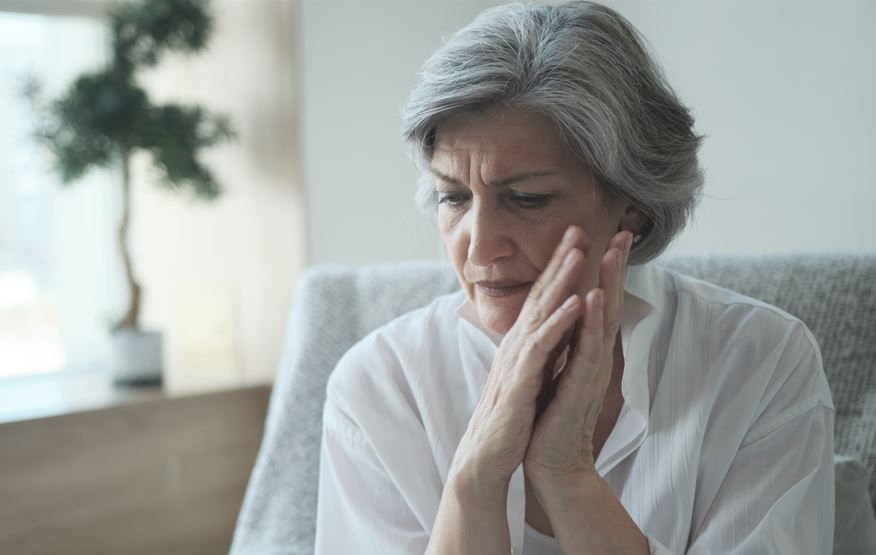- Clinical Technology
- Adult Immunization
- Hepatology
- Pediatric Immunization
- Screening
- Psychiatry
- Allergy
- Women's Health
- Cardiology
- Pediatrics
- Dermatology
- Endocrinology
- Pain Management
- Gastroenterology
- Infectious Disease
- Obesity Medicine
- Rheumatology
- Nephrology
- Neurology
- Pulmonology
Loneliness Poses a Critical Barrier to Chronic Care Management
A new survey found that the loneliness linked to a diagnosis of chronic illness saps motivation to seek regular care and almost universally to take medications as prescribed.
Loneliness among patients with chronic illness is increasingly recognized as a significant disruptor of treatment adherence, health outcomes, and health care costs. In a national survey of more than 2,000 Americans managing at least 1 chronic condition, 74% reported that loneliness negatively affects their physical health. More than half reported the feeling of isolation affects motivation to continue regular care and more than one-third (41%) admitted they avoided picking up prescriptions.1
"Loneliness directly impacts mortality. Data shows that loneliness in the US poses health risks as deadly as smoking up to 15 cigarettes daily. These latest findings demonstrate that loneliness is not just a social issue anymore — it's a serious public health concern impacting all ages and all races."
©Justlight/stock.adobe.com

Findings of a new report from Pleio, Loneliness and Health Behaviors: A Missing Link in Chronic Care, highlight emotional disengagement as a largely overlooked clinical risk that compromises care initiation and maintenance. 1
Sixty-three percent of respondents experienced worsening loneliness following their diagnosis, suggesting that diagnosis itself often is the “tipping point” for emotional withdrawal. Among patients prescribed specialty medications, 74% reported greater loneliness, with particularly high rates among those managing cancer (80%). In total, 73% indicated loneliness interfered with the ability to complete daily routines, while 81% said their chronic condition intensified feelings of isolation.1
“We commissioned this report to understand the emotional realities behind medication non-adherence. Now we have the data to prove it—loneliness isn’t just hurting patients emotionally; it’s putting their health at risk,” Michael Oleksiw, CEO of Pleio said in a statement.2
Stemming from the emotional disengagement, more than half (59%) reported diminished motivation to attend medical appointments, and 41% agreed that the feelings led them to avoid picking up prescriptions. Monthly medication adherence was a significant challenge for nearly 80% of respondents, with more than 30% reporting weekly issues.1
The Need to Connect
The data also pointed to deficiencies in the clinical support network that surround patients with chronic care needs. More than half (57%) turned to sources outside their clinical care team with questions about their condition or overall health; sources included family, friends, online resources, or pharmacists. Respondents cited delays in reply or other difficulties reaching their health care team, with 53% saying clinicians took too long to reply or appeared too busy to engage with them. Most characterized their relationships with pharmacists and healthcare providers as transactional, with 80% of specialty medication users and 70% of nonspecialty users reporting such perceptions.
Patients prescribed specialty therapies demonstrated greater vulnerability across several measures compared with those on nonspecialty medications. They were more likely to experience heightened loneliness after diagnosis (74% vs 57%), have trouble retaining important health information during their diagnosis (71% vs 49%), report daily routine disruptions due to loneliness (81% vs 68%), and face difficulties adhering to medications as prescribed (70% vs 42%). Overall, 34% of patients surveyed reported experiencing serious health events they attributed to difficulty managing their conditions alone.
Peer-to-patient support programs surfaced as a promising intervention for patients who are lonely and crave connection. Seventy percent of patients expressed strong interest in outreach from individuals with shared experiences; an even greater proportion (89%) believed such connections would help reduce their loneliness. Peer connection-someone to listen and offer guidance-would help nearly three-quarters (74%) of respondents manage their health better and 72% felt that the one-to-one support would help them follow their prescribed medication regimens.
"Authenticity is key," the study authors wrote. Patients emphasize that connection, not just communication, is what truly matters. In fact, 74% of patients say they retain more information when it comes from someone they genuinely connect with, highlighting the importance of trust and understanding in support relationships."
References
1. Loneliness and Health Behaviors: A Missing Link in Chronic Care. Pleio; 2025. https://www.pleio.com/wp-content/uploads/2025/04/Loneliness-and-Health-Behaviors-A-Missing-Link-in-Chronic-Care.pdf
2. The most overlooked risk factor in chronic care? loneliness. Pleio. News release. April 28, 2025. Accessed April 30, 2025. https://www.prnewswire.com/news-releases/the-most-overlooked-risk-factor-in-chronic-care-loneliness-302436436.html
Obesity Linked to Faster Alzheimer Disease Progression in Longitudinal Blood Biomarker Analysis
December 2nd 2025Biomarker trajectories over 5 years in study participants with AD show steeper rises in pTau217, NfL, and amyloid burden among those with obesity, highlighting risk factor relevance.
